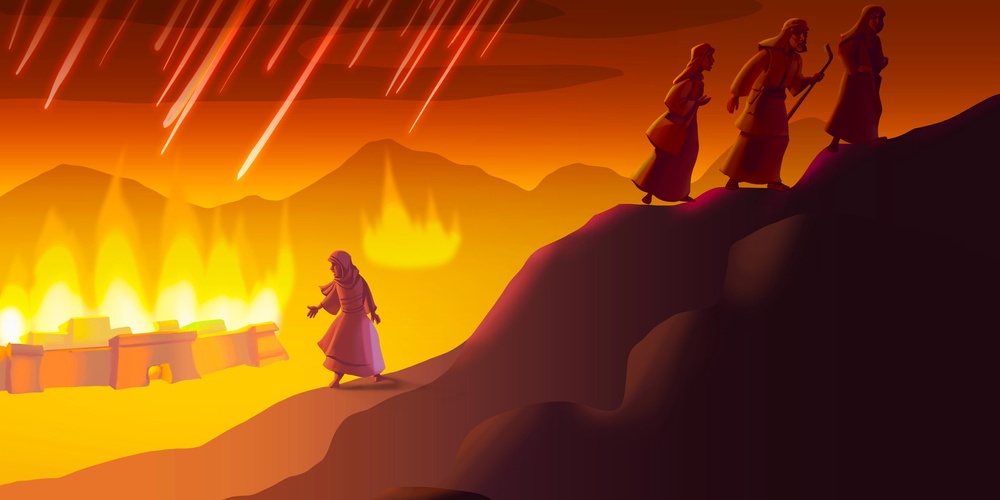
“And the people of Sedom were evil and sinners towards G-d beyond all measure” (Breisheet 13:13). Despite their depravity, Avraham Avinu argued, challenged, pleaded and negotiated with G-d for their welfare. It is specifically this trait of caring and concern for “evil” people—a trait that characterized all the Avot and Imahot—that demonstrates their greatness. They may have despised the evil of Sedom, but the people of Sedom were to be spared. Despite Avraham's efforts, the people of Sedom were so evil that G-d had no choice but to destroy them.
A close look at the negotiations between Avraham and G-d reveal that this was more than an argument about the limits of mercy. Avraham not only asks that the righteous be spared—“It would be sacrilege to kill the innocent with the guilty”—he practically demands that the merit of the few righteous be extended to spare the lives of the many wicked. "Would you still destroy it, and not spare the place for the sake of fifty good people within the city?” (Breisheet 18:24).
However, Avraham understood that in order for the righteous to save the wicked, there must be some connection between the two. Thus, he asked that Sedom be spared if there were 50 righteous people b’toch ha’ir, in the midst of the city. Living in an environment populated only with others whose sole goal is to become more righteous is most beautiful, but practically guarantees one will have no influence on society at large. To make a difference, one must live in the midst of the city, serving as an example to others. While becoming a tzadik is much more difficult when surrounded by others less pious, it is only this type of tzadik who can impact upon and even save a city.
Furthermore, the fact that a “secular” society allows for religious freedom and expression in its midst testifies to at least some level its righteousness. Thus, Avraham argued that even if the tzadikim in Sedom had no influence on the evildoers, the fact that they could dwell there in peace should be enough to save the whole city. G-d, of course, accepted Avraham’s argument. The only problem was that there were no righteous people living in Sedom.
Based on a subtle change in the text, Rav Shimshon Raphael Hirsch notes that even in regards to allowing the presence of tzadikim, not all cases are equally meritorious. In describing G-d’s willingness to spare the people of Sedom, the Torah uses the expression lo ashcheet, “I will not destroy”, regarding 45, 20 or 10 tzadikim. Not destruction, the text implies, but some form of punishment.
However, had there been 30 or 40 righteous people causing the city to be spared, then G-d declares lo e’eseh, “I will do nothing”—there will be no punishment at all. Why the change in terminology and resultant punishment?
Rav Hirsch explains that a society’s toleration of a minority population only has meaning when the minority is substantial, but not threatening. If the minority group is large enough that they will not eventually go away—perhaps even influencing policy—then toleration by the majority group says nothing about their morality. The majority “tolerated” the “other” out of fear and lack of choice. Similarly, if the minority group is insignificant, they can be tolerated because they can be overlooked. Only if a majority tolerates a group that can’t be overlooked and can threaten societal norms—in this case, 30 or 40 people—can moral significance be attached to its benevolence. Thus, 45, 20 or 10 will save the city from destruction only, but 30 or 40 will spare the city any harm.
The test of strength for a democracy is how it treats its minorities, how much dissent it allows, and whether or not it welcomes a strong opposition. Sedom had none of the above and sadly, today there are many societies that follow in its path. We who thankfully live in open societies must be ever-vigilant to ensure that our societies are not influenced by the Sedoms of the world. How we might influence these societies to move away from their Sedom-like behaviour is a challenge that we must face head-on. While economic concerns cannot be dismissed, they also cannot be divorced from moral considerations. Let us pray and act to ensure that we have more influence on them than they do on us.



